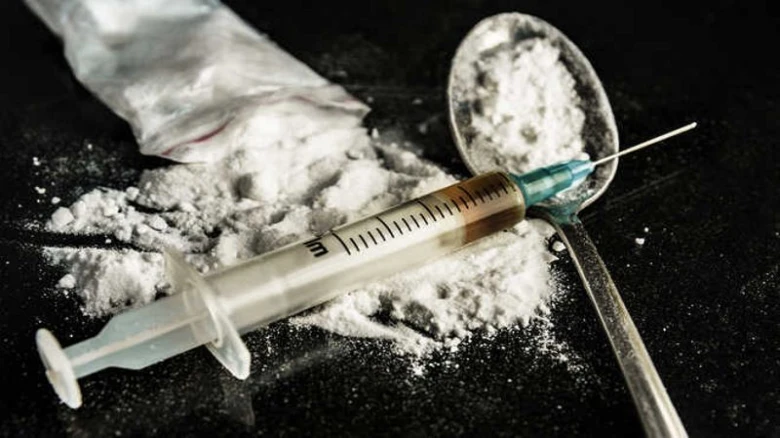In the state, the police had conducted 18,301 raids in small shops and eateries close to schools and had registered 401 cases to remove the drug menace from school grounds.
Digital Desk: In a horrifying video that leaked on social media a few months ago, a young woman was captured by police during a raid at a lodge in the centre of Kerala screaming while under the effect of drugs. The inquiry into the tragedy later found that the woman, who was formerly a bright student, had been used by the deadly mafia as a carrier to conduct their lucrative business before being seduced into the drug trade. It was one of several episodes that rocked Kerala society and forced the government to act harshly against individuals involved in the state's seedy industry.
Another disturbing finding from a recent Kerala police survey of kids under 21 who were substance addiction sufferers was that 40% of them were under the age of 18.
The fact that most of them were young girls who had been taken advantage of by drug gangs and were then exploited as carriers make this situation much more terrifying. According to ADGP (Law and Order), M R Ajith Kumar, while substance misuse cases used to be more frequently reported in universities, they are now increasingly being recorded in schools and affecting young girls.
According to Kumar, who is also the state nodal officer for the state police's "Yoddhav" anti-drug programme, women carriers are utilised to entice young girls into the trap. According to Kumar, they first make friends with the schoolgirls before introducing them gradually to the risky realm of drug usage.
The senior police official claimed that petty stores and tiny roadside cafes known as "thattukadas" close to the schools actively offer drugs to pupils. "To entice female students into the network, drug-carrying women are employed as bait. Boys are frequently employed to entice their female pals into drug traps "he stated.
The police had carried out 18,301 raids in petty shops and tiny eateries close to schools in the state and had logged 401 cases to eliminate the drug threat from school grounds.
186.38 grammes of MDMA, 1122.1 grammes of hashish, and 20.97 kg of marijuana have all been seized, along with 462 other suspects. The police officer claimed that drug traffickers target tuition centres to entice children when some schools step up surveillance and block the admission of drugs. When visiting several schools to provide counselling to victims of drug usage, counsellors affiliated with Child Protection Units claim they found drug packets on the desks, benches, and inside of the students' backpacks.
When we counsel them, they readily acknowledge using these drugs but never divulge where they obtained them, according to Anju Dias, a counsellor with the Thiruvananthapuram District Child Protection Unit, who spoke to PTI. Sexual assault and drug use are frequently linked among girls 13 and older.
"Boyfriends introduce them for sex purposes and introduce them to narcotics. The females frequently turn back to obtain the substance," said Dias. According to psychologist Aswanthya SK of the District Child Protection Unit, who has vast experience working with victims of sex abuse and drug misuse, family and teachers are crucial in prevention.
"Most of the time, instructors and parents are too focused on academics to notice if their children are acting differently. Teachers and parents only become aware that the type of instruction or parenting they have been providing is inappropriate for the specific child when the youngster gets into problems "said Avanthya.
She advises parents to keep tight contact with their kids, watches them closely, and routinely inspect their kids' stuff, particularly their luggage.
"These are mostly psychoactive drugs, in general. It may have an impact on and change the child's brain chemistry. As a result, the youngster becomes significantly aberrant, and eventually, hallucinations begin to develop. The relationships between children will subsequently be weird and tense, "she added. According to the police, Kerala is currently dealing with a problem that Punjab had been trying to resolve for years without success.
However, the state government has committed to combat the problem more forcefully. To that end, it has organised different departments, including the police and excise departments, and launched a significant anti-drug campaign. As a result, the number of Narcotics, Drugs, and Psychotropic Substances (NDPS) cases registered in the state and the number of arrests has increased by a factor of five. 1377 "black spots," the hub of drug trafficking operations within the purview of 472 police stations in the state, have been discovered by the authorities.

Leave A Comment